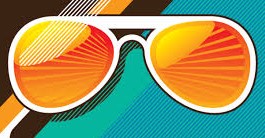
Which Way the Wind Is Blowing
Following trends, I believe, is a natural human tendency. I can imagine ancient peoples following the hunting and gathering techniques of their neighbors and changing, albeit slowly, when they see the majority of their neighbors adopting new techniques.
Contemporary clothing fashions, photos and commentary show, have changed from generation to generation. Now they seem to change at least every other year.
But does “what everybody else is doing” have any real bearing on what is true or false? Isn’t it possible that vast numbers of people accept or reject ideas, not because they’re better or worse ideas, but simply because they want to conform to what others are doing and believing?
Nazi Germany comes to mind. Vast numbers of Germans accepted the lies of Adolf Hitler – about the “inferiority” and “deceitfulness” of Jews, about “racial purity,” about the necessity of war and a governmental iron grip on German life – with little dissent. Did the fact that an apparent majority of Germans agree to them add an iota of veracity to those ideas?
Devastated Much of the World
Obviously not. They led to the slaughter of millions of innocent people, a legacy of racism, a war that devastated much of the world as well as Germany itself.
Fact is, you can’t tell much about the weather, or much else, by which way the wind is blowing.
So that brings us to the latest Gallup poll, from March of this year, about U.S. Church membership. For the first time in the 80 or so years Gallup has been keeping track, it fell below 50 percent.
“In 2020,” says an online commentary by Gallup, “47% of Americans said they belonged to a church, synagogue or mosque, down from 50% in 2018 and 70% in 1999.
“U.S. church membership was 73% when Gallup first measured it in 1937 and remained near 70% for the next six decades,” it says, “before beginning a steady decline around the turn of the 21st century.”
Overwhelming Influence
In my opinion, unbridled prosperity – at least in the “western world” (“It is easier for a camel to go through the eye of a needle than for a rich man to enter the kingdom of God.”) – a decrease in interest in the past; a decline in reading; a drop in numbers of people willing to “join” anything, and the overwhelming influence of social-media trendiness are part of the problem.
For people like me, a skeptic but believer in God and my Catholic faith, the Gallup statistics are discouraging. But it’s not because it makes me doubt my decision to adhere to my faith – even though as I’ve written often, doubt is always part of belief. It saddens me and many other people of faith because so many people are indifferent or hostile to faith and religion. And many of them, in my view, have become so with less thought and examination than they put into buying a car.
Instead, you hear such insipid comments as, “Religion is a thing of the past,” “Belief is for old people,” or “Religion is boring.” These sentiments don’t address the critical questions: Is there a God and if so, does he relate to us and if so, how? And how should I respond?
Shot Itself in the Foot
Religion has also shot itself in the foot. Two most prominent ways, in my view, is allowing politics to shape our faith instead of our faith shaping our politics. And the clerical sexual abuse of young people and its cover-up, particularly by the Catholic clergy.
There are undoubtedly many people who want to believe, who struggle with belief, who are open to consideration of the issues involved. I admire these people and pray for them. But my impression is that few people make the effort to resolve their problems with God and religion – issues that, to me, are the most important in life.
Popular novels, even written decades ago, provide a dystopian view of a future in which a world government imposes some version of Utopia on their citizens. An “ideal” and worry-free society is formed in exchange for limits on human freedom and thought. Often, they are opposed by a remnant of religious people who are considered enemies of the state.
That scenario is possible but not probable, in my view. The demise of religion has been inaccurately predicted countless times. Fact is, religion is here to stay and is acutely needed by human beings – whether they know it or not.




